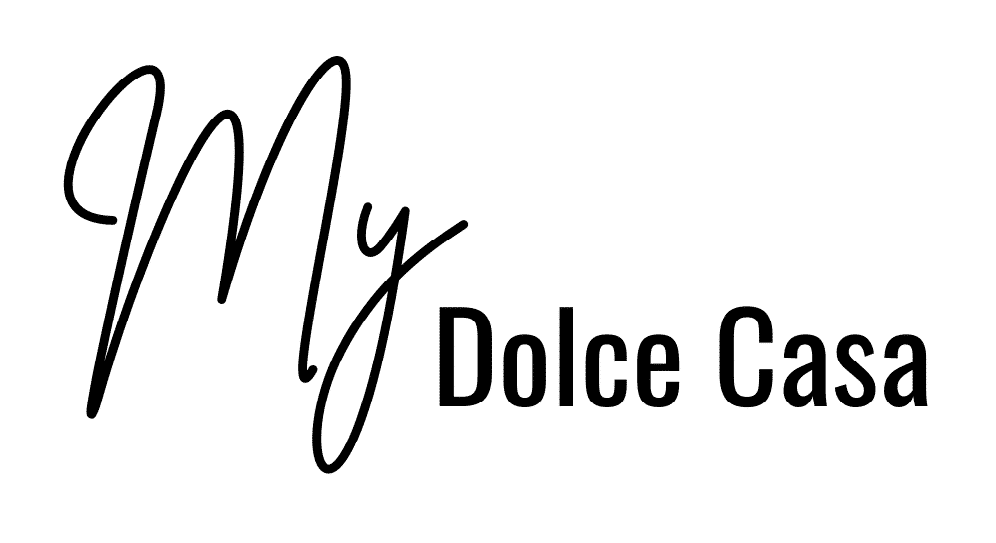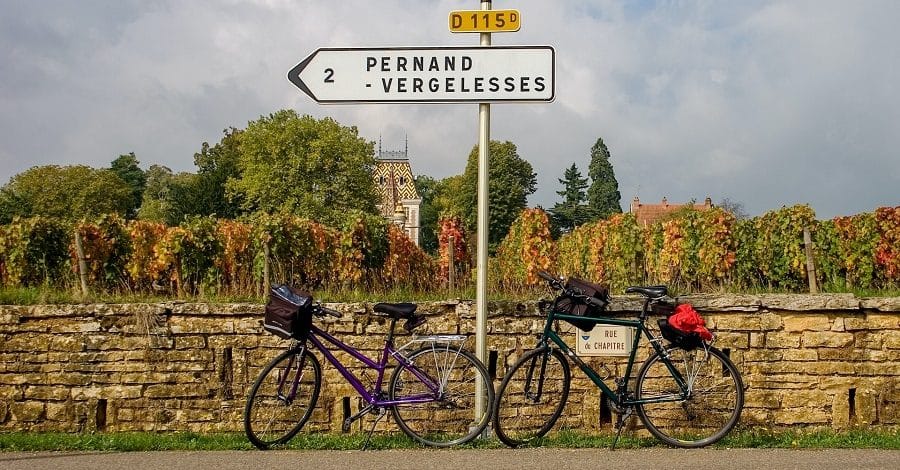Moving to another country is usually the culmination of months of planning and excitement. France is a great country to live in, with gorgeous nature, interesting towns and villages, and the best food and wine in the world. But moving to France also requires adjustment to a more different lifestyle than you might expect.
Although life in France for expats – whether working or retired – is generally very good, when asked about their move to France, most expats will agree that there are things they wished they had known before they left their homeland.
We thought you’d want to learn about these things from other expats’ experience rather than finding out yourself the hard way. So, here we share the “insider tips” you should know while you are still at the planning stage of moving to France:
1. The “joys” of French bureaucracy
As soon as you start planning to move to France, you discover the joys of paperwork in France. You will need to complete mountains of paperwork for everything ranging from opening a bank account, renting a property to applying for your residency permit. The key to success is definitely to be organized and to have all the requested paperwork with you.
Before you leave for France, ensure that you have both the originals and copies of your full birth and marriage certificates, divorce papers, employment contract, and six months of payslips (if applicable) plus recent bank statements. In France, a woman is often referred to by her maiden name, and this is why birth/marriage certificates are so important. If you have been adopted, your adoption certificate will be needed too.

Often, it is required for your birth certificate or passport to be officially translated by an appointed translator. Although this cannot be done in advance, having a quality copy of all your documents that you can hand over saves time and hassle. Many government offices have different sets of requirements, which can be double frustrating!
2. The ultimate pain of French bureaucracy
In addition to the overwhelming amount of paperwork required by the French authorities for pretty much anything, the French bureaucracy is notoriously slow. So it is crucial that you complete all the paperwork correctly; otherwise, it could be rejected, and you will have to start all over again.
Knowing this in advance helps you understand that this is typical in France. If you get buried in papers or have to wait for months and months for an answer on an application, it’s not you, it’s them. There is no need to panic or give up, rather take comfort in knowing that it’s a (slow) process.
3. Taxes in France are higher than in the UK or the US
If you are moving to France and will be working and eligible for tax, the bad news is that France has some of the highest taxes in the world. Income tax is 45%, but housing tax, social security tax, and taxes on goods and services must all be taken into account too. Consult an accountant to figure out your personal tax circumstances, and prepare to part with more of your income than you might be used to.

4. The cost of living in France is surprisingly high
The cost of living in France is surprisingly high, and this doesn’t only include food. The supermarkets are not as competitive as they are in other countries such as the UK or the US, and many of the basics are pricier. Rents are high in large towns and cities, and utility bills are more expensive – especially electricity, which has been rising steadily in price.
If you have a car, you will find petrol prices higher and diesel about the same. The international postal service is both slow and expensive, and this is particularly relevant for non-EU countries like the United States and England who might want to ship packages to and from home.
5. France is the land of strikes
The French are passionate, and they often express their feelings with strikes and protests. The idea is that the strikes will raise awareness, but in reality, they usually only raise the levels of frustration. The most disruptive strikes are those that hit public transport; there can be problems with planes, trains, the metro, and trams, and the most infuriating thing is that there is often no warning.
6. You have to surrender your driving license
It is a requirement that once you have become a resident in France from a non-EU country like the United States or the United Kingdom, you exchange your driving license for a French one within one year. The time limit to do so is 18 months if you are from another EU country. When you apply for a French driving license, you will have to surrender the license from your home country.
The bonus is that there is no age limit for when you must stop driving and no requirement for annual medical check-ups. In the UK, for example, once you reach 70 years, you must obtain a regular doctor’s certificate to continue driving. In the United States, there are no fixed age limits, but many states have adopted a similar 70-year rule as the UK.
7. Bringing pets to France is a hassle
If you are planning to move your pets with you to France, you must be ultra-organized, which is quite tricky as you have plenty to prepare for your move. The maximum number of dogs, cats, and ferrets you can import is five, and it is forbidden to import any pets under 16 weeks of age into France. Category 1 dogs, including Staffordshire terrier, American Staffordshire terrier (pitbull), Mastiff (boerbull), and Tosa, are also banned. Check with the French Ministry of Agriculture for the current list. Category 2 dogs of the Staffordshire terrier, American Staffordshire terrier, or Tosa breed also have restrictions for importing into France.

When you arrive in France, you must be able to prove that you meet all the health requirements stated in Regulation (EU) 576/2013 of 12 June 2013 plus:
- Your animal must be microchipped to international standards ISO 11784 and ISO 11785, so it can be easily read. Your pet can be identified by a legible tattoo (this requirement was prior to 3 July 2011 and superseded by the microchip).
- You must get your pet vaccinated against rabies (this is allowed to be done at the same time as microchipping) and be able to produce a valid certificate for the time of travel. The animal must be vaccinated at least 21 days prior to travel but best at least three months before travel.
- You must obtain a health certificate from your veterinarian in compliance with Annex IV, Part 1 of Regulation 577/2013 of 28 June 2013 and be in possession of a current pet passport if you are traveling from European countries.
A real plus factor is that French Veterinarians are really good, and their charges are lower than many other countries – but it is worth taking out pet insurance in France.
8. The French people don’t like to speak English
It definitely comes as a surprise to many that very few French people speak English – especially in the smaller towns and villages. This is arguably the most important thing you wish you’d known before moving to France, as it will affect you on a daily basis.
Students do learn English as a foreign language, but many are shy to use it. Instructions on products and food packaging are often not written in English either. A major disappointment can be the fact that it is hard to buy newspapers and magazines in English, except in the major cities and places like the Dordogne that have a high percentage of English-speaking residents.
9. It’s necessary to learn French
If you have not started learning French in preparation for moving to France, it really is a big MUST that will make a very positive difference to everyday life. You will find that you need to speak French in shops, at the doctors and in veterinary clinics, and for opening a bank account and all other types of admin.
There are so many ways to learn French, including free websites and group lessons in many French towns. Many communities have Anglo-French groups which are a great way to improve your French and meet people.
10. Consider the local weather when choosing a location to move
A really important consideration when contemplating your move is where to live in France. France is a large country, and the weather varies tremendously depending on where you are. If you would like a climate similar to southern England, Brittany and Normandy are good locations. It may seem trivial, but weather is one of the most important things you wish you would have considered before moving to France.
If you really long for a Mediterranean-style climate, then the South of France and eastwards to Nice promises you plenty of sunshine. Charente Maritime, just northwest of Bordeaux, is warm and sunny too, but with slightly cooler temperatures in the summer.

Choosing a location inland can make a difference too as areas like the Dordogne and Lot et Garonne experience warmer temperatures in the summer and much colder weather in the winter. Once you have chosen your area, it is well worth looking online at the yearly weather reports and whether it is in an area affected by the Mistral – a cold wind that blows through the Rhône valley.
11. Working hours and shop opening times can be tricky
An important thing to know before moving to France is that you’ll be forced to adjust your daily and weekly schedule significantly. The balance between work and leisure is very important in France, and most offices are open Monday – Friday, although sometimes you do find one open on a Saturday morning too.
Lunch is the most important meal of the day, and everyone tries to return home for a cooked family meal – which is usually eaten between 12.00- 12.30. Consequently, lunch breaks in France are much longer and usually at least two hours – 12.00- 14.30 being common. The advantage is that most offices remain open until 18.00.
It really is essential to check that you have plenty of food for the weekend – especially if you live in a smaller rural area. Supermarkets in larger towns and cities are open on a Sunday morning between 09.00- 12.00, but in smaller rural areas, they are not and may well be closed on a Monday too – as will many other shops, hair and beauty salons. Supermarkets in larger towns are usually open from 08.30- 19.00, but some remain open longer.
12. Few foreign foods are available in France
We have some bad news for your cravings. You may often find yourself missing some foods and dishes from home and won’t be able to buy them in France. It can come as quite a surprise to find that French supermarkets are filled with umm… French food! In supermarkets in the main cities, you may find a decent selection of international foods, as well as in foreign supermarkets like Lidl and Aldi, but in rural areas, tastes are very conservative.
The French do not like hot spicy foods, so even if you track down some curry sauces marked ‘hot’, they are unlikely to be. Pasta is popular, and the array of pizzas in supermarkets is dazzling. There are pizza takeaways everywhere, so it comes as no surprise to learn that the French eat more pizzas than the Italians.

So, if you love Indian food, Mexican food or the Creole cuisine, the solution is to stock up on your favorite spices from your home country and learn to prepare those foods yourself when the cravings hit! The bright side is that you’ll be eating more delicious food homemade from scratch.
13. Being vegetarian or on a special diet can be challenging
Another important aspect to know before moving to France is the low availability of vegetarian and special diet options, as this can affect your health. Slowly, France is changing, but at the present (away from the main cities), it is difficult to find vegetarian options in restaurants and food items in supermarkets.
Being vegan is even harder, as is searching for foods suitable for gluten-free diets and Coeliacs. The range of products in French supermarkets in all departments is surprisingly limited. The supermarket chain that offers the best range of gluten-free products is E. LeClerc.
14. Good greetings cards, ribbons, and bows are scarce
If you have the chance to bulk buy lovely birthday cards before you leave for France, do! For some reason, the range of cards available in most places is surprisingly small, and the prices are hefty too.
If you are someone who loves wrapping presents in pretty paper with coordinated ribbons and bows, you may well be disappointed by the choice. One thing that is amusing is that the French love ages on birthday cards, and many feature a wheel that can be turned to the appropriate age, so if you were trying to keep things a secret…
15. Christmas is not as important or commercial
Even though it has numerous stunning churches and cathedrals, France is a secular country, so Christmas is relatively low key. The shops do not usually start displaying their festive stock until November, and it certainly lacks the huge appeal of other countries like the UK, US, Germany, and Scandinavia.
Christmas cards are sold individually, but some charities have started producing ‘packs of five’ – a large mixed box of cards is impossible to find, as cards are not widely exchanged.
On the flip side, New Year is a huge celebration in France, which everyone can enjoy, and even the smaller towns have a firework display as the clock chimes midnight.
16. Dog mess on the pavements and other environmental issues
One of the biggest surprises of all when moving to France is to find dog mess on many pavements. Only some dog owners actually carry a roll of small disposable bags to collect up their dog’s mess, and there is no legislation to ensure that they do.
It has to be said that other environmental issues are lacking too. Although shoppers are encouraged to bring their ‘bags for life’ to the supermarket, food is still sold with plenty of packaging. Recycling is done to a minimum in many places, with bins for general trash and recyclables.
Glass cannot be collected but must be taken by the individual to their nearest garbage dump (décheterie) or placed in one of the many collection points.
17. It is difficult to find work
Patience is definitely the ‘key to success’ where job hunting is concerned. Speaking good French really is a requirement unless you are a hairdresser, beautician, plumber, or photographer and can get work on the expat network.

It is important to ensure that you are able to work legally in France and to register as self-employed. During the summer season, if you speak passable French, you may well be able to work in the tourism sector. Teaching English, either in-person or online, is a good way to start your work in France.
18. French business etiquette is very different
If you are working for a French company, it is important to know that the etiquette is a little different. The main difference is the extra-long lunch break, and because everyone has this break, it is considered very impolite to eat at your desk.
The French value their leisure time highly, so it is considered wrong to contact a business colleague about work over the weekend or during a Bank Holiday.
19. Making French friends can be tricky
If you have recently arrived in France and invited all your neighbors to a ‘house warming’ party and been disappointed because no one turned up, don’t be. Things are different in France, and the French tend to keep themselves to themselves – even two neighboring French families may not socialize.
On the whole, French people tend to have just a small circle of friends, so it can be tricky and it may take time to become a member of their group as a foreigner.
20. French wills and estate laws are different
If you are moving to France to enjoy your retirement, it is very important that you have everything in place legally, and this may well mean that you need to write new wills. What will be a surprise is that under French law, 50% of a person’s estate is left to their spouse, and the other 50% is then divided equally among the children. It is not possible to give more to one child or disinherit another, and, of course, this all becomes very complicated if there are stepchildren.
If you would like to have a will from your home country covering your assets in France, this can be possible, but the Will must be drawn up by a specialist cross-border solicitor or attorney who can check its validity and ensure that the terms can be carried out fully in France. Plus, ensure that there will be no unexpected taxation incurred by your family.
While all the above points may have come as a surprise and even a disappointment to read, there are so many other aspects of French life that are really bonuses, and that includes the French health service.
Getting around is easy as the French railway network is impressive, and traveling abroad is easy by air, rail, or coach. France is the European country with the second-highest number of Public Holidays – 11 after Austria, which has 12.
Leaving you on a definite high note, where else can you treat yourself to a fresh crusty baguette, some excellent cheese, and a bottle of decent wine and get change from ten euros?

